News | May 16th, 2018
FARGO – Special assessments are the main event in this year’s city commissioners’ race, inciting verbal jabs between candidates. In one corner, weighing in after more than three years experience, Fargo Commissioner Tony Gehrig threw the first punch, outlining his plan to end all assessments.
Heavyweight Tim Flakoll, a former state Senator, countered with his own plan, describing Gehrig’s proposal, late during his first term as a city commissioner, as “lip service.”
Other candidates weighed in soon after, eager to step from their neutral corners and join the bout with less than a month away from the June 12 election day.
In this final third part of the Meet your candidates series, the High Plains Reader focused on two questions: the opioid, addiction, and incarceration crisis and special assessments.
Those running for the two open seats on the city’s commission this year are:
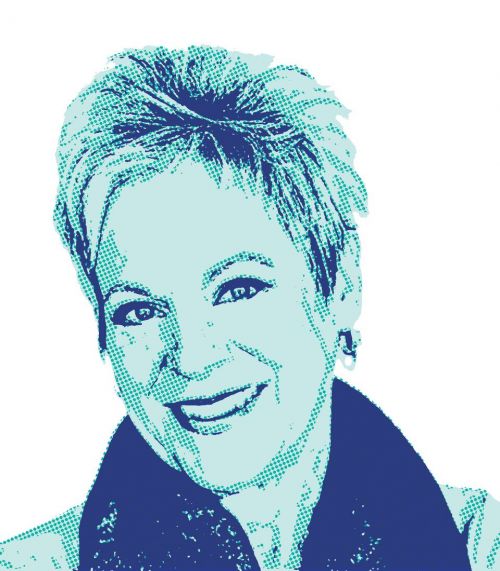 Linda Boyd, a former Fargo City Commissioner, Deputy Mayor, and Fargo School Board member, and is currently a nonprofit organizer and business owner.
Linda Boyd, a former Fargo City Commissioner, Deputy Mayor, and Fargo School Board member, and is currently a nonprofit organizer and business owner.
On opioid crisis, addiction, and incarceration:
“When a society criminalizes addiction, it creates compound problems for itself. Right now, access to addiction and mental health care is nowhere near adequate to meet the need. When addiction leads to crime (to sustain the addiction), which leads to incarceration, lives are too often lost to wasted potential. With a criminal record, it is nearly impossible to secure a good job, housing, and higher education opportunities. I heartily support the efforts of groups like the F5 Project, but this is a much larger and more systemic problem that will take a major systemic and philosophical change nationwide and statewide if we are to make true progress as a society. As a city, we can remove barriers to housing and employment options where possible and support rehabilitation programs through Fargo Cass Public Health and others.
On special assessments:
“I find it unconscionable that a sitting Fargo City Commissioner has taken to local media to proclaim that his fellow commissioners and city staff are foisting “dirty secrets” on Fargo citizens. There are certainly improvements that should be made to current special assessment policies, but portraying city officials as somehow nefarious is not one of them.
“Special assessments are an effective way that cities throughout North Dakota finance improvements to their cities. I believe there are ways we can improve our process in Fargo by the following means, some of which are already being recommended by the Mayor:
"1. Return to a 70-30 split of rehab costs (70% city, 30% property owner)
"2. Rework the assessment policy on arterials (major streets and thoroughfares) to avoid individual homeowners bearing the brunt of paying for improvements to busy city streets that are shared by all (i.e. the homeowners on North Broadway)
"3. Pursue lower-interest loans through the ND Legacy Fund (advocate for proposed legislation)
"4. Apply some of the remaining special assessment funds that are currently transferred to the general fund to increase funds available to the Special Assessment Assistance Fund and update eligibility income requirements so that more people who have low or fixed incomes can qualify to have their specials paid.
“Fargo is moving forward in many positive ways but we need good governance, not gimmicks, to keep moving forward into a prosperous and thriving future.”
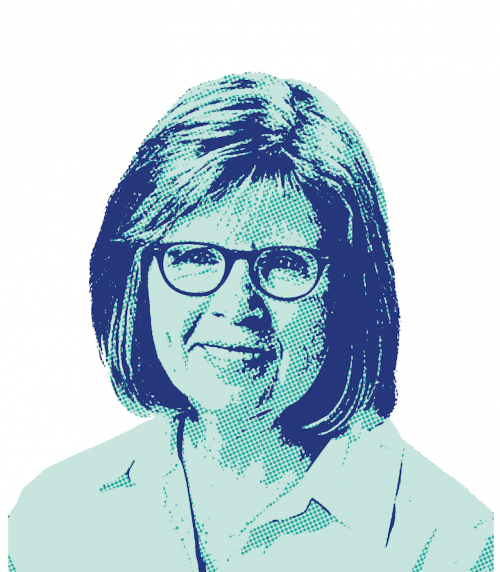 Arlette Preston worked for MeritCare, now Sanford, for 21 years as a nurse, educator, and administrator, and started her own business in 2003 called Home Instead Senior Care.
Arlette Preston worked for MeritCare, now Sanford, for 21 years as a nurse, educator, and administrator, and started her own business in 2003 called Home Instead Senior Care.
On opioid crisis, addiction, and incarceration:
“The practice of throwing individuals with addiction issues into jail and/or prison has to stop. It is not solving the problem and it truly costs more. Rehabilitation has to be the focus.
“Our community has been hit over the past few years with way too many untimely deaths due to opioid use. The community has responded, the medical community has changed their prescription practices. Narcan is more widely available (all high schools and middle schools in Cass County now have Narcan nasal spray), a wide-spread educational effort is taking place to help identify people at risk and getting them into services. We must continue down this path – it’s taking way too many of our young people.”
On special assessments:
“The use of special assessments for streets and infrastructure reconstruction is out of balance right now. I support increasing funding from sales tax revenue to previous levels for infrastructure, providing immediate relief to those property owners who are getting hit hardest with assessments. In addition, I support the proposal by the Mayor for a thorough review of the use of special assessments as an ongoing funding mechanism. I will work for a full and transparent public discussion, understanding the importance of approaching it thoughtfully and considering impacts from all sides. Ultimately, we need to decrease our reliance on special assessments as a funding mechanism.”
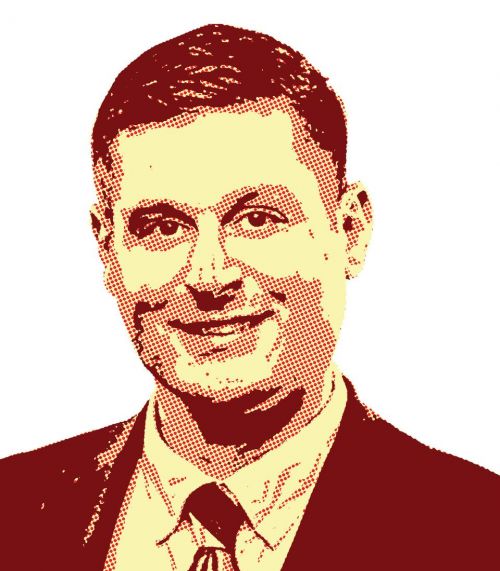 Tony Gehrig was born in Moorhead, and after graduating from the Fargo Catholic Schools Network, went on to Shanley in 2002. A 2007 graduate from NDSU, Gehrig is currently a pilot for the Air National Guard 119WG.
Tony Gehrig was born in Moorhead, and after graduating from the Fargo Catholic Schools Network, went on to Shanley in 2002. A 2007 graduate from NDSU, Gehrig is currently a pilot for the Air National Guard 119WG.
On opioid crisis, addiction, and incarceration:
“We can do some very simple things that would reduce our burden on law enforcement. Currently, if you are caught with a beer in public, that is a crime. Many folks, often minorities in downtown Fargo, get arrested for this minor offense and end up in jail because they can’t post bail. These small infractions should be dealt with by small fines, not jail time.
“Regarding opioids and other drugs, we have made some good progress. We have enacted a needle exchange and Narcan has been distributed to first responders. There is much more work to do but this is a national crisis and the answers are not easy to come by. Having the public dialogue is important and should continue.”
On special assessments:
“Special assessments or ‘specials’ have been around for a long time in Fargo and they should end. There is one simple way to make sure these dirty little secrets don’t continue happening. End all specials. Good news is, I have released a plan to do just that.”
[Part of Gehrig’s plan can be viewed here.]
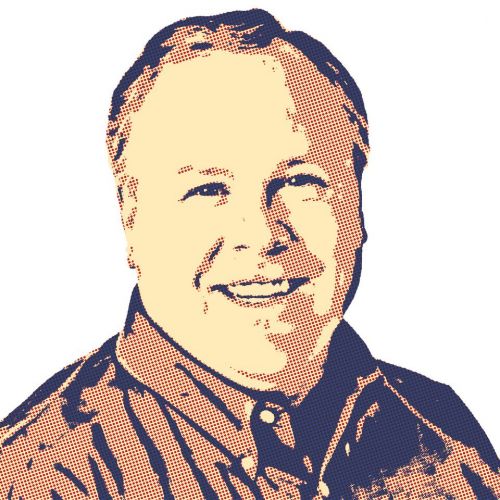 Tim Flakoll, who has lived in Fargo his adult life, is a provost for Tri-College University and Director of Operations for NDSU Downtown.
Tim Flakoll, who has lived in Fargo his adult life, is a provost for Tri-College University and Director of Operations for NDSU Downtown.
On opioid crisis, addiction, and incarceration:
“We need criminal justice reform and that begins with prevention. One simple example is that doctors don’t need to prescribe 30 codeine pills for a tooth extraction or cut on an arm that requires six stitches. In the Legislature, I sponsored legislation that restricted access to the precursors of meth and it reduced meth production in North Dakota by 90% in the first year.
“We must look to solve our biggest societal challenges especially fighting the opioid crisis and other substance abuse issues by working with county, state and national leaders to ensure full coverage, best practices without wasteful overlap.
“We need better programs in our jails and prisons and the state has invested $7 million for new treatment plans after release, peer support and assistance with housing and employment. The F5 program in Fargo is a world-class organization who does a great job dealing with these type of issues and programs.
It is becoming more and more evident to people that one-month treatment programs are not long enough. Rather they need 90 day or six-month programs to be more effective.”
On special assessments:
“My common sense plan is designed to save homeowners millions of dollars instead of simply shifting the tax burden through a socialization of taxes. Dramatic improvements in specials are part of my plan for my first 100 days. The issue has received no action by incumbent Commissioners for the past four years and this ongoing inaction is one of the main reasons I am running. People with specials need real service, not lip service. My common sense plan goes to the root of the problem, with a focus on driving down project costs on the front end.”
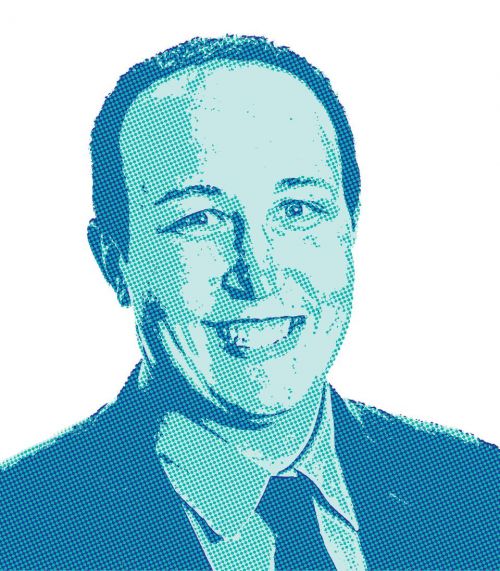 Kelan Oster was born in Dickinson, and graduated from Oaks High School before attending NDSU. He transferred to and graduated from the University of Mary with a Bachelor’s of Science degree.
Kelan Oster was born in Dickinson, and graduated from Oaks High School before attending NDSU. He transferred to and graduated from the University of Mary with a Bachelor’s of Science degree.
On opioid crisis, addiction, and incarceration:
“When looking at crime and incarceration it is very difficult to look at a one-size-fits-all approach to our problems. We need to not only look at each specific offense individually, but also look at the person who committed the crime. Was it based on some sort of an addiction? Are they a career criminal? Do we stand a chance in rehabilitating the person? If we can rehabilitate, we not only need to work to ensure that we give them the tools to live a better and more productive life after the offense, but we also need to work with businesses and leaders to help ensure they have money making options so they are not forced back in to a life of crime to survive.
“We need to work to give these people options to gain a skill or get a degree/diploma while in prison to help ensure they will be a contributing member of society once they are out. We need to ensure that those with addictions have their disease properly dealt with to help them to get sober and help them to stay sober along the way.
“We need to ensure however that we are locking up career criminals and violent predators to ensure all citizens are safe. The ones that can be rehabilitated need to be and those who cannot need to be locked away.”
On special assessments:
“Special Assessments are being used and abused by our city government. This is an area that should have been fixed a long time ago, however all we keep getting is lip service from almost all of our leaders. If this issue is not dealt with now we will continue to see more apartment buildings going up, more senior citizens pushed out of their homes, and fewer homeowners in our city, because of one simple thing, they can’t afford the specials. If we do not get this issue taken care of we will see our established neighborhoods turn into rental camps. If we want to keep the neighborhoods and keep Fargo the way we love it, we need to take this complex and tough issue on.
“The major issue we need to fix is the amount that we require homeowners to pay when there is an update to infrastructure in their neighborhood. I plan to limit the amount of the project that homeowners are responsible for to 10 percent or less of the project. They are currently responsible for 50 percent. I would also ensure that all updates on major roadways are not passed on at all to the property owners in that area, as they are not the only people benefitting from the major road update.
“We also need to look at limiting the amount of specials we tack on to new developments. Everyone moving to a new neighborhood is expecting some level of specials based on the newly built infrastructure. The amount being passed on through specials for this is outrageous. We need to change this from a 50-50 split to a 70-30 split, with homeowners picking up 30 percent.
“We also need to address the current special assessments that are being paid off to the city. There is no reason we should be charging higher rates on specials than many are paying on their home loan. I plan to give these property owners the opportunity to refinance all of their specials to receive a lower rate. We need to only be making enough to cover the inflation, not to also make a profit on the specials we require to be paid.”
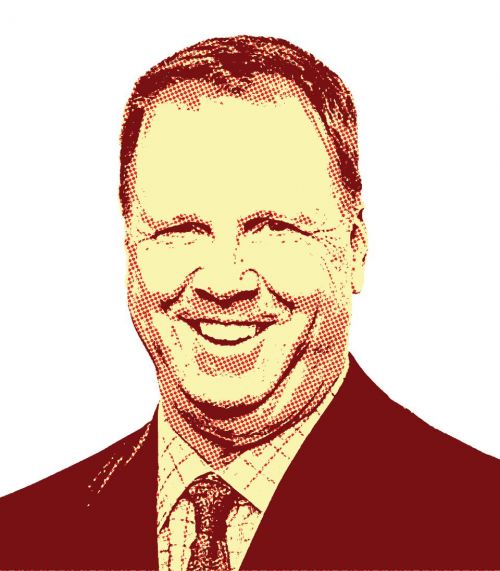 Dave Piepkorn has served two terms as a city commissioner, and is also the deputy mayor.
Dave Piepkorn has served two terms as a city commissioner, and is also the deputy mayor.
On opioid crisis, addiction, and incarceration:
“I believe we have responded well as a city. The mayor's task force made recommendations that we have implemented. The best example is our first responders now carrying Narcan in their vehicles, so they can act immediately.”
On special assessments:
“I believe we need to modify our current specials system. The main arterial streets should be financed through the overall city budget. This would eliminate the unfair burden that is placed on some properties and not others.”
 Lenny N. Tweeden was born in Moorhead, but grew up in Fargo. He’s a business owner, and formerly with Hornbacher’s management.
Lenny N. Tweeden was born in Moorhead, but grew up in Fargo. He’s a business owner, and formerly with Hornbacher’s management.
On opioid crisis, addiction, and incarceration:
“We have too many people in jails and prisons. It should be a place for serious crimes and repeat offenders. House arrest and/or community service should be an alternative solution.
“Two issues that I hope to address in this election is raising the minimum wage and a change in city government from a city commission to a city council.”
On special assessments:
“We need to ensure we are helping people currently with specials, those who will be receiving special assessments, and the new neighborhoods being built. My plan addresses all of these areas.”
“If we are going to solve this problem for the people that deserve it, we need input from everyone.”
 Michael J. Williams is a former city commissioner who promises to “work to make Fargo and North Dakota a more affordable, family friendly community where people come to live, work, learn, and play.”
Michael J. Williams is a former city commissioner who promises to “work to make Fargo and North Dakota a more affordable, family friendly community where people come to live, work, learn, and play.”
On opioid crisis, addiction, and incarceration:
“These crisis are a reaction to effects of our current culture and lack of proper public investment and focus on people’s well being from birth. Our 16-member group saw the benefits of public investments in education, health care on the Smart Innovations Learning Tour to Norway I organized recently. Norway was rated happiest country in 2017.”
“Yes we need to improve and find ways to help people rehabilitate and develop skills they’re interested in. More people in jail is not the answer and proactive investments in education and health are much less than the average $32,000 annual cost for each person in jail. It’s a better investment to help people have a safe place to live for much less.”
On special assessments:
“Fargo needs to improve the processes for special assessments. I am thankful and eager to work with all that also have ideas for improving the Fargo policies to more equitably fund public infrastructure. There are two primary types of special assessments.”
“Assessments that fund infrastructure for new developments expanding into low lying farm fields where there is little or no primary infrastructure in place: As I’ve proposed for years, Fargo should get back to developers building the cost of infrastructure into the price of the property as is typically done across the country. This was the way it was done in Fargo prior to the changes made in the 1980's when house building was not keeping up with demand because of 18 percent interest rates.”
“The developers must still build according to plans and specifications for the infrastructure to meet city standards. Also, a traffic analysis must be done with street design to assure connectivity for efficient delivery of city services and access. The city should stop funding infrastructure for new greenfield developments that expand further into the flood plain. When developers finance their own infrastructure, they will develop where infrastructure is already and save duplication in engineering and administrative costs.”
“For rehabilitation and improvements: assessments should not exceed any increase market value the completed project adds to the property. An item not often considered, our current land use and zoning is a root cause for high infrastructure costs. Work to improve our zoning practices with context oriented form based codes. Our current zoning often separates where we live from where we work, learn, and play hindering adding quality mixed use neighborhoods.”
“Focusing on more mixed use in our neighborhoods, connectivity and more complete streets, developing neighborhood nodes like the Midtown concept will reduce the need to travel from one section of town to the other and will be more friendly to people walking, people biking, and folks using Matbus and shared economy transportation options. Fargoans on average spend 27 percent on transportation, 24 percent on housing. Reducing transportation costs and congestion will save on road repairs and the push for wider, more expensive streets.”
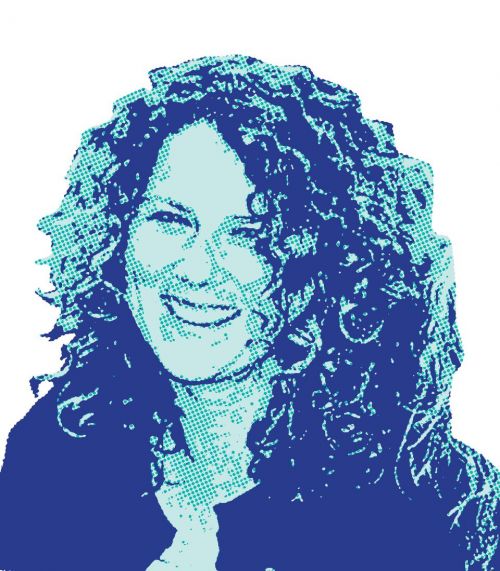 Liz Maddock-Johnson was raised in Fargo and along with her husband has been a teacher most of her working life. She has a masters’ degree in curriculum and design, and is pursuing a specialist degree in educational leadership.
Liz Maddock-Johnson was raised in Fargo and along with her husband has been a teacher most of her working life. She has a masters’ degree in curriculum and design, and is pursuing a specialist degree in educational leadership.
On opioid crisis, addiction, and incarceration:
“Our community's mental health is reflected in our classrooms and neighborhood schools. Working in leadership positions, it is clear Fargo has some hurting families and citizens. We have families in crisis. Our service departments know this as well.”
“To ensure a successful future of Fargo, we need to support our emergency services including police and fire departments in continuing to train and find resources and skills to best provide support and safety for our community.”
“Within the last few years, I have found myself involved in cases personally and work-related dealing with individuals in crisis. Understanding how these situations happened and evolved does not erase the fact the people who are hurting hurt others. It leaves bystanders and neighborhoods in a state of shock and trauma. I have great respect for our first responders and public servants.”
“Being a public servant myself, I know it takes commitment and passion to work with all people. I believe in order for the City of Fargo to move forward, we must do a much better job of being proactive, connecting services to people, and providing support long after leaving our programs. People and families who are hurting need the city to make sure that there is an equity of resources for all neighborhoods. That will take a community effort.”
“The safety and success of a community starts with how well we treat or provide for our most vulnerable.”
On special assessments:
“To answer this question, I think the quick solution to help with homeowners’ concerns is to go back to the city and homeowner paying 50/50 versus the 70/30 it is at right now in paying for special assessments. From there, I think as a City Commissioner, we need to take a careful and thorough look at how the City of Fargo intends to make changes moving forward and making a commitment to solving this concern, whether this means looking at other successful cities and models or thinking more in terms of moving Fargo toward alternative ways to build our infrastructure like green energy and materials. Regardless, I want the City of Fargo to involve the voices of its citizens in a collaborative planning approach. In order to make an informed decision, we will also need to make a commitment to a timeline for this process. It will be important to the future of Fargo and how we can successfully grow.”
February 16th 2026
January 27th 2026
January 27th 2026
January 26th 2026
January 24th 2026
_(1)_(1)_(1)_(1)_(1)__293px-wide.jpg)
_(1)__293px-wide.jpg)



